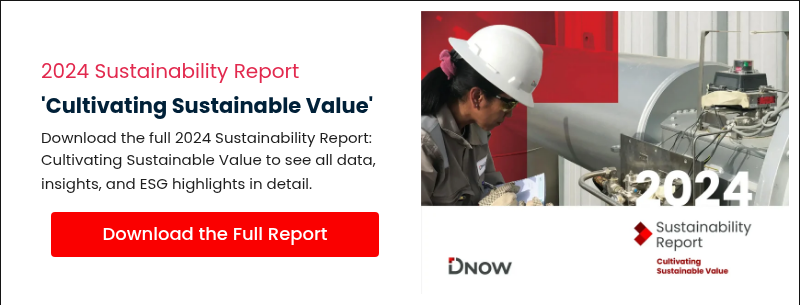- About Us
- Corporate Citizenship
- Corporate Sustainability
- Culture of Governance
Culture of Governance
Governance is the foundation of sustainability. DNOW’s commitment to strong governance policies and practices is rooted in our values. We operate our business with the highest standards of ethics and integrity and strive to provide accountability and transparency through active engagement with all our shareholders.
Our Governance Highlights
- Majority of directors are independent by SEC and NYSE standards, including Chairman of the Board
- Robust oversight of risk and risk management
- Annual Board of Directors and committee evaluations and assessments
- Regular executive sessions of independent directors required by Governance Guidelines
- Diverse Board with varying backgrounds and expertise
Compensation Principles
- Competitive, market-driven base salary
- Formula-driven, quantitative performance targets for a significant portion of total compensation, including varying metrics to drive short-term and long-term performance
- Capped incentive opportunities
- Robust stock ownership guidelines align executive and director interests with those of stockholders
- – Non-employee directors: 5x annual cash retainer, CEO: 5x annual base salary, All Executive Officers: 2x annual base salary
- Executive officers and directors are unconditionally prohibited from engaging in short selling, put, call or other derivative transactions or hedging or other monetization transactions in our common stock
- Double trigger in employment agreements for change in control
1 - Diverse indicates directors that are female and/or a member of an underrepresented racial/ethnic group. Board diversity is as of December 31, 2024.
Corporate Governance Oversight
We emphasize a culture of accountability and conduct our business in a manner that is fair, ethical and responsible to earn the trust of our shareholders. We also maintain governance, compliance and risk management programs to help ensure compliance with applicable laws and regulations governing our business practices.
DNOW’s Board of Directors and management acknowledge that a strong governance structure is foundational for fostering an accountable business culture, upholding high standards of ethical conduct and ensuring sustainable shareholder value creation. Maintaining shareholder trust and goodwill by upholding our ethical standards and adhering to high standards in both policies and performance remains a centralized focus of our Company. We are committed to being responsive to and engaging with our shareholders on operational, financial, governance, environmental, safety and social matters to create a layer of transparency which ensures consistency in our implementation and enforcement, creating commitment and gaining buy-in.
The DNOW Board is responsible for the oversight of the management of our Company and its business for the long-term benefit of our shareholders. Its Directors set the tone for DNOW and operate under a set of published Corporate Governance Guidelines, which are based on best practices that meet or exceed the NYSE’s and SEC’s existing standards. We feature an independent, experienced and diverse Board with expertise in a broad set of areas relevant to our business. Our Code of Conduct and Ethics requires all of our directors, officers and employees to conduct business in an ethical manner and in compliance with all applicable laws, rules and regulations.
DNOW has a unified focus on protecting our environment, investing in our people and communities and striving for transparency at all levels of the organization. We have a strong structure to ensure continuous improvement toward achieving our goals and programs to benefit all our shareholders. The Board has designated the Environmental, Social, Governance & Nominating Committee with responsibility for oversight of DNOW’s policies and practices on environmental responsibility, social impact and our culture of governance.
“Our committee ensures ESG considerations provide context to help drive strategic decisions, holding leadership accountable to sustainability commitments while transforming good intentions into measurable outcomes that create long-term value."
The following documents represent key corporate governance framework:
- Corporate Governance Guidelines
- Charter of the Audit Committee of the Board of Directors
- Charter of the Compensation Committee of the Board of Directors
- Charter of the Environmental, Social, Governance & Nominating Committee of the Board of Directors
- Bylaws of DNOW Inc.
- Certificate of Incorporation of DNOW Inc.
- Anti-Corruption / Anti-Bribery Policy
- Code of Business Conduct and Ethical Standards
- Code of Business Conduct and Ethics for Members of the Board of Directors and Executive Officers
- Code of Ethics for Senior Financial Officers
- Policy on Insider Trading
- U.S. Export and Economic Sanctions Policy
Our Sustainable Governance Structure
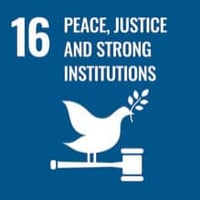
Comprised of 8 directors with deep industry and leadership expertise, with 7 independent members, including the Chairman of the Board
Consists of three committees:
- Audit Committee
- Compensation Committee
- Environmental, Social, Governance & Nominating Committee
- Oversees business strategy development, establishment of strong governance framework and integration of ESG factors
- Controls risk and opportunity assessment, management and mitigation of priority risks, including risks related to strategic business initiatives including climate-change and other ESG- related matters
- Approves annual goals and objectives and reviews quarterly and annual business key performance indicators, including environmental and human capital metrics
Cross-functional leadership team, comprised of representatives from various departments across our Company
- Develops and executes on overall business strategy, including creating initiatives to integrate ESG throughout our operations
- Manages, prioritizes and integrates relevant business risks and opportunities into our strategic focus areas and monitors ESG and compliance performance
- Focuses on building ESG concepts and initiatives at the management level for execution down into various functions within the organization
Comprised of representatives from various departments across our Company and overseen by members of our executive management team
- Develops strategy to address key ESG-related risks and opportunities and implements programs to drive towards our strategic goals
- Meets at least quarterly to ensure sustainability metrics and disclosures align with our strategic plan and are communicated to stakeholders
- Coordinates with Internal Audit under the oversight of the Audit Committee to conduct risk assessments related to certain key sustainability metrics and disclosures
Approximately 2,575 employees
- Executes and identifies ways to enhance our existing strategy throughout day-to-day operations
- Routinely monitors our ESG performance and trends and implements best practices
Our Board acknowledges the importance of a diverse mix of directors with complementary qualifications, expertise and attributes to effectively fulfill its oversight responsibilities. Although we do not have a formal diversity policy in place for director nominations, the Board recognizes that diverse candidates with appropriate and relevant skills and experience contribute to the breadth of perspective in the boardroom. Candidates are considered based on their diversity of background, viewpoints, professional experience, education, gender, age and culture — including nationality, race or ethnic background. You can learn more about our Board governance in our 2025 Proxy Statement.
The members of the Board collectively possess the knowledge, skills and unique perspectives needed to successfully guide our Company toward continued sustainable growth. They possess broad-based business knowledge, outstanding achievement in their professional careers, a commitment to ethical values and executive leadership. They also meet the Company’s articulated director qualifications, including independence, accountability, integrity, sound judgment in areas relevant to the Company’s businesses and diversity of background. Overall, our directors have demonstrated experience and expertise in a number of different substantive areas relevant to the Company.
Director Core Industry Experience
2
<30 years
4
30-40 years
2
40+ years
Average Director Age
years
66-75
Average Director Age
years
7-10
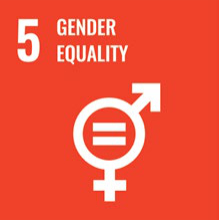
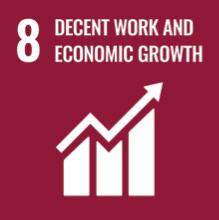
Effective & Independent Board Oversight
Skills and Competencies1
Board Diversity
Directors
ESG Experience
Directors
Director
Other Corporate Governance Highlights
- Annual Say-on-Pay voting (95% approval in 2024)
- Stock ownership guidelines for officers including expansive clawback policy to recover executive compensation
- Board engagement with CEO over management succession planning
- Annual Board and committee evaluations using a third-party facilitator
- Majority voting to elect Board members
- In-depth strategic review with senior management analyzing risks and opportunities
- 5X stock ownership requirement of annual retainer for non-employee directors
Management is charged with identifying material risks in a timely manner, implementing strategies that are responsive to the Company’s risk profile and specific material risk exposure, evaluating and managing risk with respect to business decision-making, and promptly communicating relevant risk-related information to the Board or appropriate committee to enable them to conduct appropriate risk management oversight.
We have a separate Chairman and CEO, with a Chairman who:
- Provides leadership to the Board by chairing meetings, organizing directors and facilitating deliberations of the Board
- Provides significant input on strategic initiatives, including evaluating new diversification and growth opportunities
- Acts as liaison between non-management directors and management
- Calls and chairs executive sessions of non-management directors and independent directors
- Consults with CEO to approve schedules, agendas and information for Board meetings
| INDEPENDENT DIRECTORS | AUDIT | COMPENSATION | ESG&N |
| Richard Alario | ✓ | ✓ | |
| Terry Bonno | ✓ | ✓ | |
| Galen Cobb | ✓ | ||
| Paul Coppinger | ✓ | Chair | |
| Karen David-Green | ✓ | ||
| Rodney Eads | Chair | ||
| Sonya Reed | Chair | ||
| David Cherechinsky (Employee Director) | |||
| Number of Meetings held in 2024 | 8 | 3 | 3 |
In 2019, Company management formed an internal employee-based ESG Committee to oversee the creation, identification, measurement and disclosure of sustainability performance data most relevant to the Company’s operations. This committee is comprised of representatives from various departments across the Company including members of the executive management team. Since the committee’s inception, the Company has published annual reports which build upon our commitment toward increased transparency and a wider focus on creating a positive global impact and reaffirming our focus on sustainable growth.
With the oversight of the Environmental, Social, Governance & Nominating Committee of the Board of Directors, the ESG Committee ensures that the relevant sustainability metrics and disclosures align with the Company’s strategic plan and that the results are communicated to stakeholders. This includes improving our data collection methodologies, expanding disclosures and looking at setting and achieving viable ESG target goals to further support our evolving ESG initiatives that align with the Sustainability Accounting Standards Board (“SASB”) reporting standards, Task Force on Climate-Related Financial Disclosures (“TCFD”) framework, and United Nations Sustainable Development Goals (“U.N. SDGs”).
We engage with our shareholders frequently to answer questions, address concerns and solicit feedback. We are committed to maintaining shareholder engagement programs that are true dialogues and prepare and approach them to provide candid and accurate information on relevant issues such as our corporate strategy and position within the market. Our shareholder engagement team consists of representatives leading matters on behalf of the Company in areas of investor relations, health, safety and environment, ESG initiatives, executive compensation, sustainability and corporate governance functions. The perspectives of our shareholders are brought back to our team for discussion and potential implementation as well as to the Board to assist with our strategic decision making.
In 2024, we reached out to our top institutional investors — representing over 70% of total ownership of the Company — to discuss our updates on Board composition and ESG-related matters and to receive any feedback on those items as well as executive compensation, amongst other items. As a result of this outreach, we had direct discussions with three of our top shareholders representing approximately 18% of our stock ownership and gained positive feedback from those conversations. We also engage with our shareholders by conducting periodic roadshows, participating at investor conferences, responding to individual investor inquiries and taking questions during our quarterly earnings calls and at our annual shareholders meeting. As a result of the incremental disclosures incorporated in last year’s proxy statement, we had a strong Say-on-Pay (95% in favor) vote.
The Board has ultimate authority and responsibility for overseeing DNOW’s risk management arising out of its operations and business strategy. This includes overseeing the Company’s enterprise-wide risk management framework, which establishes the Company’s overall risk management strategy and enables senior management to understand, manage and report on the risks faced by the Company.
DNOW seeks to implement and maintain practices that are ethical and reasonable. We believe that ethical and humane employee, customer and vendor treatment are top priorities. Guided by our executive leadership team, we balance a drive for financial results with responsibility toward ethical professionalism. DNOW has adopted a Code of Conduct and associated policies which govern the behavior of its employees and its partners. The Code and associated policies cover relevant areas and issues, which employees face on a day-to-day basis to guide behaviors representing DNOW’s expectations.
We provide every employee with a reliable and confidential Governance Hotline to report such issues as harassment, security violations, unfair labor practices, discrimination, threatening behavior, substance abuse, theft, fraud, compliance and regulatory violations or other workplace issues in a safe and convenient manner. This service is available 24/7 and employees are able to make reports anonymously, as the Company has a strict no-retaliation policy for reports made in good faith. The Company offers a third-party legal and ethics hotline and web intake options, tailored to comply with local laws and support language and country-specific requirements.
Our Board views management succession planning as a critical component of ensuring business continuity and performance. The Environmental, Social, Governance & Nominating Committee oversees our management succession planning, which includes input from executives to monitor and guide leadership development for our executive leadership team. The ability of the Company to attract, retain and develop high-performing employees and create a workplace where they can innovate and thrive is an integral party of the Company’s strategy to drive long-term value and mitigate risk. The Environmental, Social, Governance & Nominating Committee regularly engages with senior leadership on succession planning, retention and turnover and workplace culture, as well as proposed succession candidates in different forums such as industry conferences, board dinners and meeting presentations.
We believe that strong corporate governance and effective management of enterprise risk and social supply chain are crucial for the long-term success of our business and shareholders. Management regularly monitors and manages supply chain risks, while adhering to a business code of conduct for vendor selection. Vendors must comply with local laws and ethical business practices, which we assess through audits, contracts and terms and conditions on purchase orders. We seek long-term relationships with partners based on mutual trust, respect and cooperation. We are progressing towards a more inclusive and transparent centralized vendor selection process to ensure fairness and impartiality, while avoiding conflicts of interest. Our evaluation criteria will include ethical labor practices, community engagement and sustainability initiatives; we strive to collaborate with like-minded partners who share our values.
The ability of the Company to attract, retain and develop high-performing employees and create a workplace where they can innovate and thrive is an integral party of the Company’s strategy to drive long-term value and mitigate risk.
The effective management of risks and opportunities is vital to the success of the DNOW business model and our long-term value creation. DNOW recognizes the significant impact of ESG objectives on our core business strategy and implements a “top-down, risk-based” enterprise risk management (“ERM”) program to identify, evaluate and monitor our relevant risks and opportunities. We start with our strategy and continue with the support for its implementation through periodic risk assessment and monitoring. Key elements of our program are listed below.
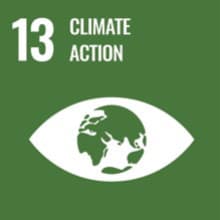
Identification and prioritization of risks and opportunities based on:
- Continuous improvement and adjustment of our program to address actual and potential risks and opportunities in the short-, medium- and long-term according to various levels of severity and frequency
- Development of a response to each relevant risk, which outlines how risks will be mitigated, transferred or avoided, and subsequently reviewed and approved by executive management
- Board oversight of risk management activities that includes regular meetings with management to discuss strategic initiatives in addressing our priority risks Internal Audit department facilitation of DNOW leaders’ assessment of risk management activities
- Communication to our Board and management that includes both corporate- wide identification of both non-operational and operational risks as well as the effectiveness of our internal controls
- Considerations of financial, operational, environmental, social, legal, cybersecurity, supply chain and compliance-related factors and implications to business risks, as applicable

Climate-Related Risks & Opportunities
We recognize the inherent risks associated with climate change and the implications of the global shift toward a low-carbon economy, both for our Company and our customers. Our commitment is to tackle these risks and associated opportunities to effectively address this critical issue.
| TYPE OF RISK | CLIMATE-RELATED RISKS | POTENTIAL FINANCIAL IMPACTS | MITIGATION STRATEGIES/OPPORTUNITIES |
| Transitional |
Increasing consumer focus on lower emissions solutions, climate change, sustainability and energy transition matters | Decreased revenues due to reduced demand for products / services |
|
| Regulatory |
Legal, regulatory, policy and liability actions associated with climate change | Increased liabilities and compliance and operating costs |
|
| Physical |
Adverse weather events or natural disasters | Increased capital expenditures and operating and insurance costs; Interruption of operations and damage to assets |
|
We are subject to a variety of federal, state, local, foreign, and provincial environmental, health, and safety laws, regulations, and permitting requirements, including those governing the discharge of pollutants or hazardous substances into the air, soil, or water; the generation, handling, use, management, storage, and disposal of, or exposure to, hazardous substances and wastes; the responsibility to investigate, remediate, monitor, and clean up contamination; and occupational health and safety. Fines and penalties may be imposed for non-compliance with applicable environmental, health and safety requirements and the failure to have or to comply with the terms and conditions of required permits.

Historically, the costs to comply with environmental and health and safety requirements have not been material to our financial position, results of operations or cash flows. We are not aware of any pending environmental compliance or remediation matters that, in the opinion of management, are reasonably likely to have a material effect on our business, financial position or results of operations or cash flows.
The shift towards a low-carbon economy is influencing our business through increased customer demand for renewable energy and cleaner energy sources. Additionally, changes in public policy, geopolitical tensions and the environmental, health and safety laws at the federal, state, local and foreign levels, both where we operate and where our customers operate, influence the products and solutions sought by our customers. These shifts create opportunities for DNOW to explore new markets and expand solutions to both current and potential customers. In a dynamic legal and regulatory environment, we navigate increased regulations and a heightened focus on emissions. While predicting the impact of legal changes (or their interpretation or enforcement) is challenging, we approach these business opportunities and risks in a highly disciplined manner.
Change in political controls, both domestic and internationally, could affect our business through the potential for reduced emissions targets and global climate change regulations on the oil and gas industry. Should environmental laws and regulations (or their interpretation or enforcement) become more stringent, our associated costs or the costs to our customers could increase.
Our Board, senior management and relevant departments stay informed of these evolving legal and regulatory landscapes. We address various inherent risks that may impact our business, including but not limited to, financial, market, political, climate, regulatory, compliance, operational, cybersecurity, safety and reputational, among others, through strategic planning. One of our primary goals is to maintain competitiveness in our industry and markets and meet our customers’ needs, while safeguarding our strategic objectives.
We acknowledge market and reputational risks posed by environmental and social factors, specifically the impact of climate change. Recognizing the geopolitical climate and heightened focus on climate change and adverse effect on the oil and gas industry’s reputation, we are adapting our business decisions to limit the environmental impact in the way we do business. As an energy industry distributor, our solutions aim to minimize environmental impact and control the emission of methane and CO2 in our customers’ operations. For further information on how our solutions help our customers reduce their carbon footprint, see the Delivering Sustainable Energy section of this report.
- A Third-Party Representative Committee comprised of a cross-functional team of higher management, which reviews agent relationships and limited-scope opportunities to ensure a balanced approach in authorizing future business prospects;
- Annual DNOW Code of Conduct and Ethical Standards training courses featuring interactive scenario-based case studies that allow employees to better understand their obligations under the Company’s Code of Conduct and acceptable responses to ethical challenges;
- Mandatory annual workplace harassment and discrimination trainings for all DNOW employees;
- Anti-Corruption and Anti-Bribery (“ACAB”) training and certification incorporating case studies to support DNOW policy in an effort to expose employees to ethical decision-making in various environments, eliminating risk and ensuring compliance with ACAB laws in all countries where DNOW operates;
- Annual acknowledgment and acceptance of our ACAB policy by agents and logistics services providers; and
- Trade Compliance Due Diligence course for DNOW employees, managers and officers to identify red flags, boycott language and sanctioned or embargoed end users or destinations emphasizing the importance of reporting such due diligence risks to the proper internal Compliance representatives.
The Transparency International Corruption Perceptions Index (“TICPI”) scores and ranks countries and territories based on how corrupt a country’s public sector is perceived to be by experts and business executives. During the years ended 2024, 2023, 2022 and 2021 approximately 0.02%, 0.04%, 0.23% and 0.15% of our revenue, respectively, was derived from products sold directly to countries that have the 20 lowest rankings according to the TICPI for the applicable years.
Through our dynamic supply chain management, we source top-tier products and services from partners who align with our commitment to integrity and ethically sustainable business practices. Our rigorous supplier selection and onboarding procedures, as well as our environmentally conscious distribution and fulfillment process, ensure adherence to our high standards and commitment to sourcing best-in-class products and services that fuel our customers’ sustainability journeys.
Sustainable and Responsible Procurement
We aim to collaborate with suppliers who embrace our sustainability-driven values, extending the advantages of these best-in-class partner relationships to our customers. Our commitment starts with our supplier selection and onboarding process. Through our Triple Impact Supplier Management Program (“TISMP”)1, we proactively manage key manufacturers in our supply chain to optimize the quality of products and services sourced, ensuring alignment with our values. Our TISMP encompasses our initiatives to manage social and environmental risks associated with suppliers. As part of this program, we conduct comprehensive assessments of key suppliers2, including evaluations of ESG practices within the supply chain.
In 2024, we offset over 501MT CO2e through our carbon-neutral parcel shipment partners3.
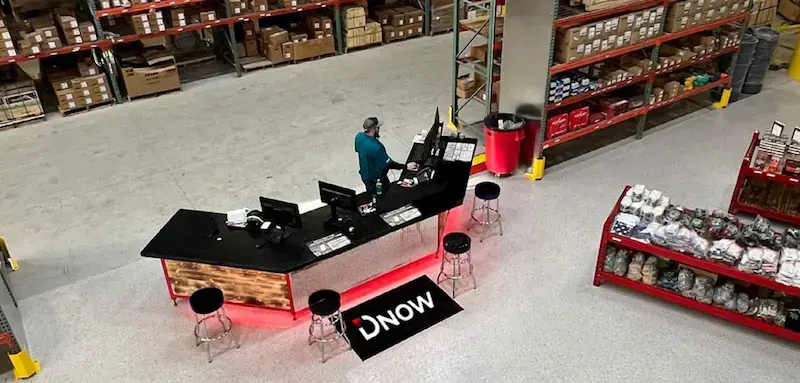
1 - Applies specifically to PVF manufacturers.
2 - Key suppliers have a long-term relationship and preferential business status with DNOW, along with good quality standings. They are classified on our approved manufacturers list (“AML”) as either a Preferred or Approved supplier.
3 - DNOW participates in select carbon neutral shipping programs through our parcel shipment carrier, whereby our parcel shipment carrier will measure our related emissions and purchase offsets from select environmental projects. Parcels are typically smaller and lighter than bulk freight shipments and have a maximum weight limit of 120 pounds per package.
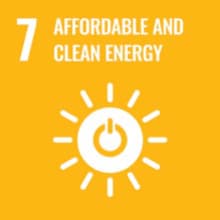
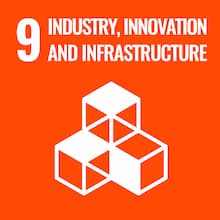
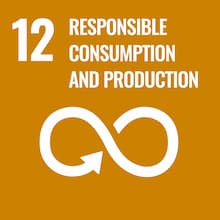

Sustainable Distribution & Fulfillment
We are committed to Cultivating Sustainable Value and responsible supply chain management. We prioritize an efficient supply chain to minimize our carbon footprint in delivering products to our distribution centers, branches and ultimately, our customers. With a global network of strategic locations near customer operations, we continue to modernize our fulfillment model through further expansions in response to changing market cycles. Our initiatives to drive efficiencies include:
- Establishing regional distribution Supercenters and orbiting branches to regionalize fulfillment and deepen access to our customers, while optimizing resource use
- Facilitating direct shipments from manufacturers to end customers, reducing redundant supply chains and fuel consumption
- Aggregating larger domestic shipments on a weekly or bi-weekly basis and exploring daily aggregation opportunities
- Implementing recycling / reuse programs to minimize packaging waste, including cardboard, plastic, metal and wood used in packaging
- Recycling scrap metal and participating in paper and plastic recycling initiatives in relevant municipalities, whenever feasible
- Compacting waste through use of machinery, such as a “precrusher,” to reduce environmental impact and hauling costs
- Participating in select parcel carrier carbon neutral shipping and reporting programs to monitor and offset our carbon emissions
SPOTLIGHT
ISO 14001:2015
DNOW holds certification to International Organization for Standardization (“ISO”) 14001:2015 in seven locations. This international standard provides guidelines for designing and implementing an environmental management system. The certification demonstrates our commitment to managing our environmental responsibilities in a systematic manner and reflects our emphasis on adopting environmental best working practices.
A full list of our certifications, including ISO 14001:2015, can be found on our Resource Center.
Our Triple Impact Supplier Management Program
 Assessment Process
Assessment Process
- Evaluate and distribute questionnaire for ASL qualification
- Admit only market-share-leading companies with strong reputations for quality products and services, safety and environmental stewardship
 Approved Suppliers List
Approved Suppliers List
- Evaluate approved suppliers continuously, including review of key quality, health, safety and environmental practices and relevant performance metrics
- Regularly stock prequalified products and offer services from ASL suppliers
 Ongoing Supplier Monitoring
Ongoing Supplier Monitoring
- Actively manage and monitor supplier performance and development
- Conduct on-site physical audits of supplier facilities
- Monitor and measure supplier quality continuously, including supplier performance reporting, laboratory tests and inspections/audits
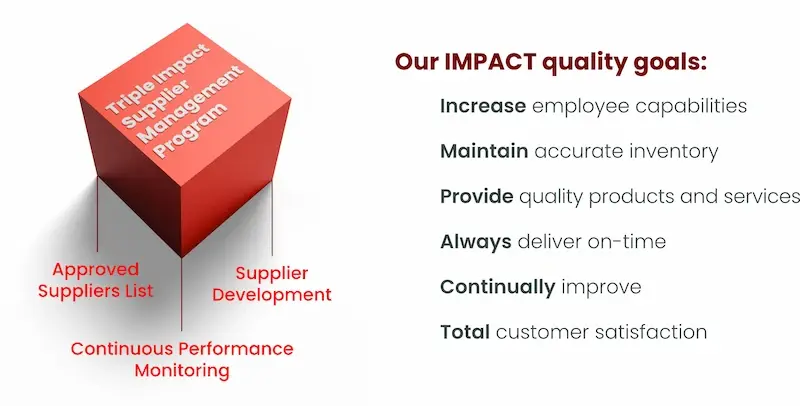
We partner with industry-leading suppliers employing cutting edge technologies to help reduce our customers’ carbon footprint. We source a significant portion of our carbon steel pipe from a manufacturer that uses electric arc furnaces to recycle scrap steel into high-performance sustainable steel pipe for our customers.
Supplier Code of Conduct
It is crucial for us to engage with suppliers who align with our values and dedication to ethical practices. Our Supplier Code of Conduct aims at ensuring our business partners commit contractually to upholding the foundational aspects of the:
- International Bill of Human Rights,
- International Labor Organization’s Declaration on Fundamental Principles and Rights at Work,
- Organization for Economic Co-operation and Development’s Guidelines for Multinational Enterprises,
- United Nations (“U.N.”) Guiding Principles on Business and Human Rights, and
- Ten Principles of the U.N. Global Compact
Our Supplier Code of Conduct conveys our expectations on alignment with DNOW’s sustainability-related values and policies, including:
- Anti-discrimination / harassment
- Health, safety and environment ("HSE")
- Anti-corruption
- Import and export laws
- Antitrust
- Disclosures / confidentiality
- Anti-forced and child labor and other labor practices
- Procedures for reporting violations
We are proud to work with thousands of best-in-class suppliers to stock quality, trade-compliant and responsibly traded products.
The primary goal of our data security program is to protect DNOW’s data and systems by maintaining cybersecurity defenses that are best-in-class within our industry. We use guidelines, frameworks and privacy laws to guide us in consistently meeting legal and regulatory requirements. We are committed to safeguarding data, raising security awareness related to cybersecurity risks, adhering to applicable state and federal privacy regulations and applying sound data management practices. This commitment to data security starts at the top with oversight by the Board and the Audit Committee. Both the Board and Audit Committee receive at least quarterly reports from DNOW’s IT leadership. These reports focus on information security, data quality, data privacy and industry and regulatory updates.
DNOW recognizes the increasing significance of cybersecurity threats in today’s digital landscape and has implemented a cyber risk management program to identify, assess, manage, mitigate and respond to cybersecurity threats. This program is integrated within the Company’s enterprise risk management program. Our approach is designed to safeguard sensitive information, protect critical assets and maintain the integrity of our operations.
- Regular assessments of cyber risks, taking into account the evolving threat landscape, technological advancements and changes in our business operations
- Proactive identification and mitigation of vulnerabilities in our information systems through regular scanning, testing and patch management
- Implementing and continuously monitoring security controls, including firewalls, intrusion detection systems, encryption and access controls, to safeguard against unauthorized access and data breaches. Our controls are based on the latest Center of Internet Security (“CIS”) Critical Security Controls best practices for cybersecurity and the National Institute of Standards and Technology Cybersecurity Framework (“NIST CSF”).
- Regular testing of our Cyber Incident Response Plan through tabletop exercises to ensure a swift, coordinated and effective response in the event of cyber incidents to minimize impact on operations. As part of our cyber incident response process, we also engage third-party experts as needed, such as external legal advisors and cybersecurity forensic firms.
Our governance structure is designed to ensure effective oversight and management of cybersecurity risks:
We remain committed to complying with all relevant cybersecurity regulations and standards applicable to our industry. Our governance structure is designed to adapt to evolving regulatory requirements and industry best practices. While we believe our current measures are robust, we recognize the dynamic nature of cyber threats and continually refine our approach to remain vigilant and responsive.
This disclosure provides stakeholders with a comprehensive overview of the organization’s cyber risk management, strategy and governance practices — demonstrating a commitment towards proactive cybersecurity measures and compliance. No unauthorized access to customer, vendor, supplier, joint venture, employee or our data occurred as a result of cybersecurity incidents against us that has had a material adverse effect on our business, operations or consolidated financial condition.
As a Company that generates a high volume of transactions reliant on networks and information systems, we face operational risks related to cybersecurity; for this reason, we invest in a multi-layered cybersecurity program. The evolution of cyber threats and attack vectors is occurring faster and with greater frequency than in the past. We closely monitor and track the general cyber threat landscape to proactively identify emerging risks.
“At DNOW, protecting the integrity and confidentiality of our data — and our customers’ data — is a top priority. In today’s digital environment, cybersecurity is not just an IT issue; it’s a business imperative. We are committed to maintaining robust data protection protocols, investing in secure technologies and ensuring that our teams are well-trained to uphold the trust our customers place in us every day. ”
— Kelly Munson, Chief Administration and Information Officer
24/7
monitoring and incident response provided by dedicated Managed Security Operations Center
ZERO
data security breaches

Implemented advanced tools to improve our ability to detect, analyze and respond to security threats
Our cybersecurity infrastructure is further enhanced through relationships with vendors that provide state-of-the-art systems and support. All corporate devices in the DNOW network are monitored 24/7 by remote infrastructure management system agents that block and shut down unauthorized attempts to access data. Our IT team consistently monitors our systems through a combination of tools and technologies to help protect our shareholders’ data. DNOW’s employees are responsible for complying with our data security standards and participating in regular testing exercises (phishing simulations) to prove skill in identifying potential threats. If an employee fails an exercise, they are assigned additional mandatory training. We also provide ongoing education to teach employees to recognize and report suspicious activity. Our IT leaders report on current trends and our cybersecurity infrastructure to the Audit Committee of the Board of Directors semi-annually.
We rely on third-party service providers to execute certain business processes, maintain information systems and infrastructure and evaluate our defenses. We periodically conduct external information security assessments to stay informed of emerging information security risks. Additionally, we maintain a supplier validation process that involves approval by our cybersecurity group for significant suppliers that will have access to our databases or technology. Our penetration testing continues to evolve to address potential new threats and has bolstered our ability to protect against vulnerabilities. Our data security and privacy practices are designed to support privacy rights and are based on industry standards.
In 2024, as in prior years, we did not experience a material compromise to any of our data systems and did not incur any material expenses resulting from information security breaches, related penalties or settlements. The Company is committed to disclosing and providing appropriate notices regarding any such data breach in compliance with relevant laws and regulations.

